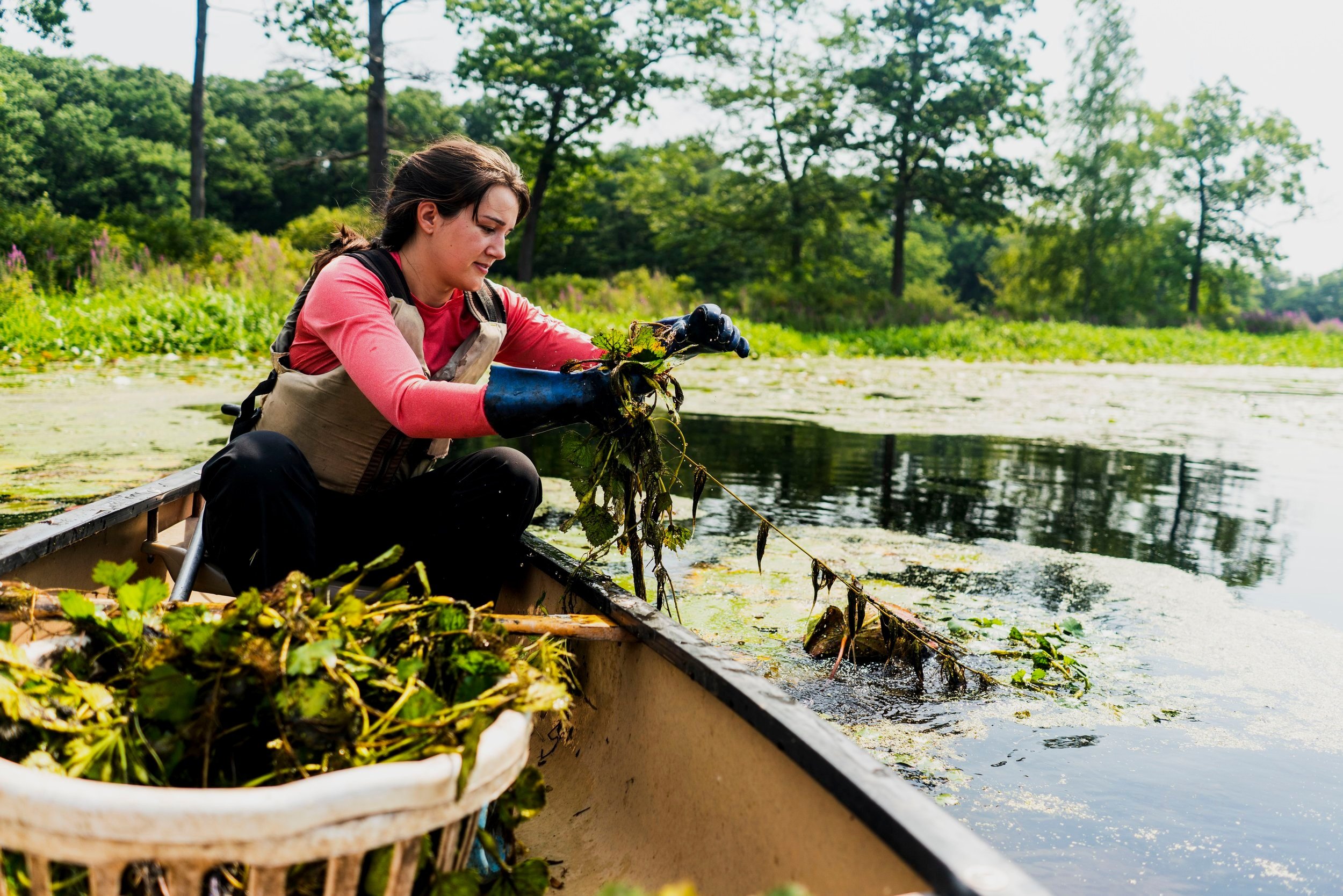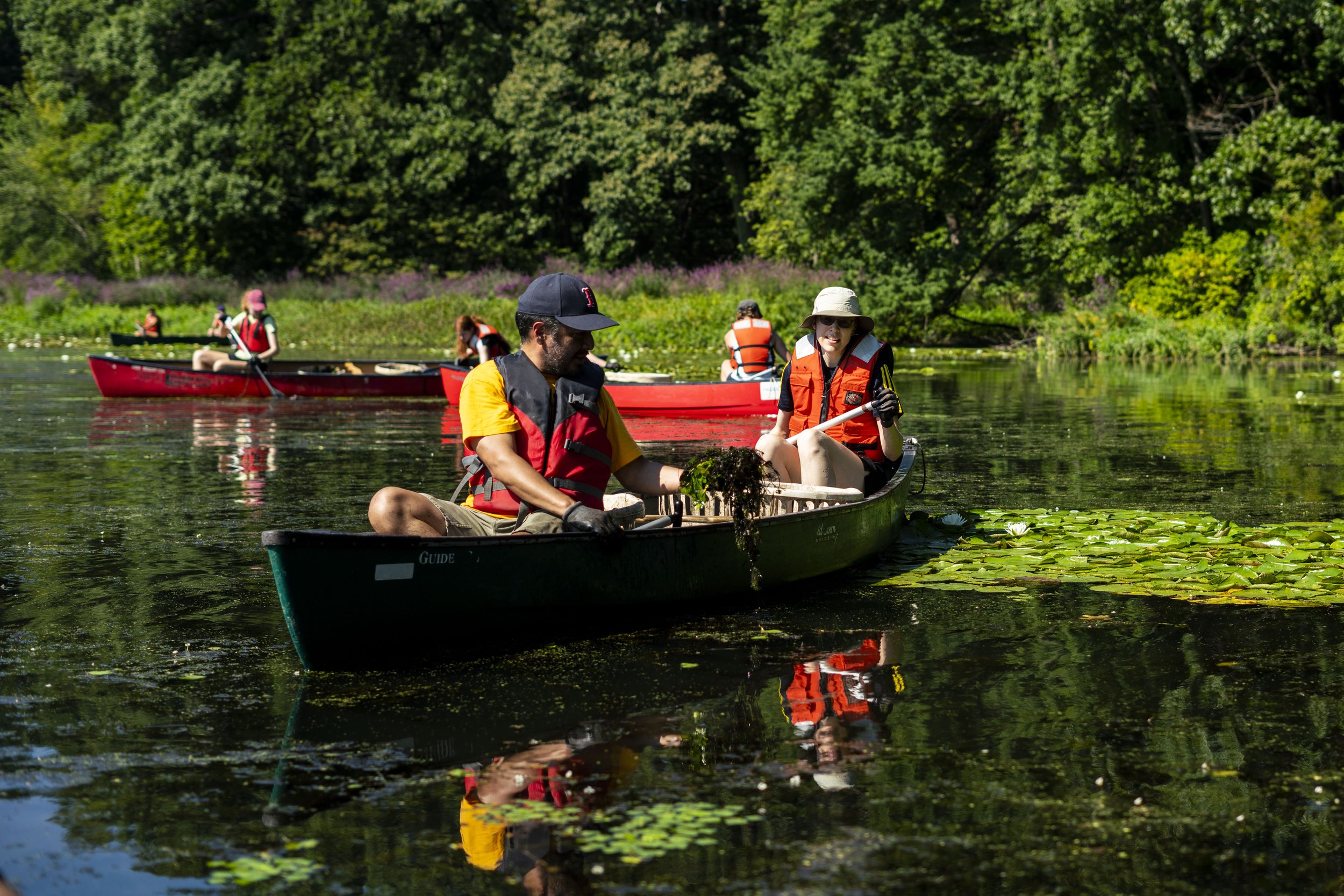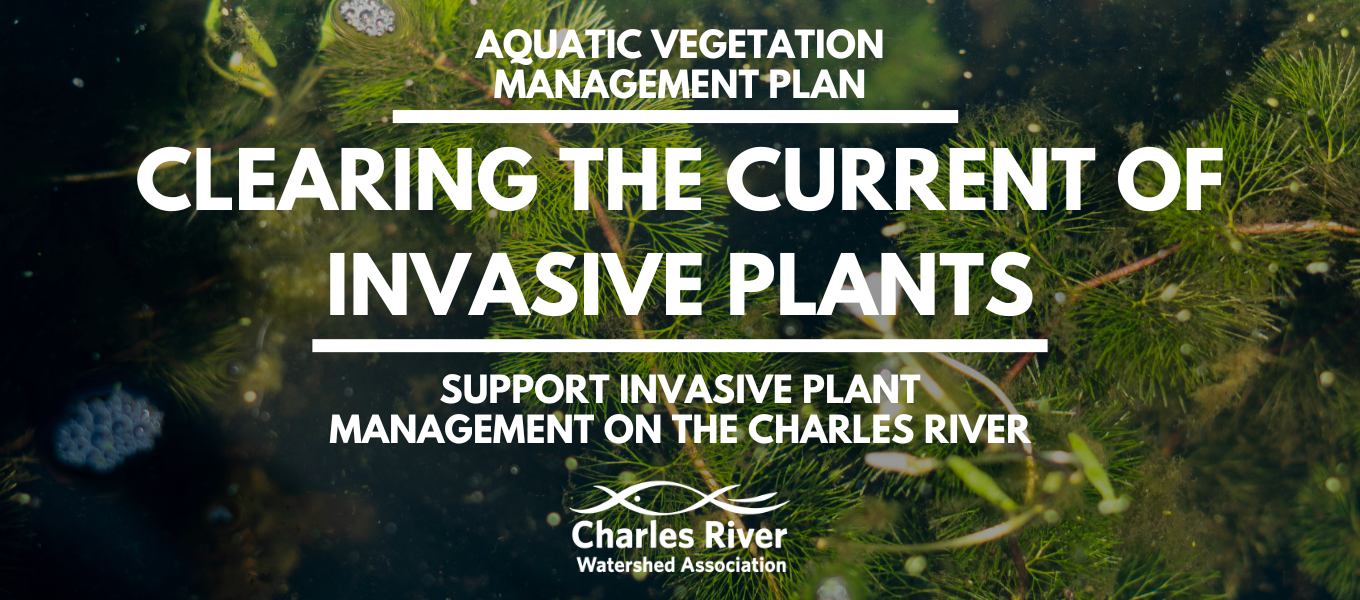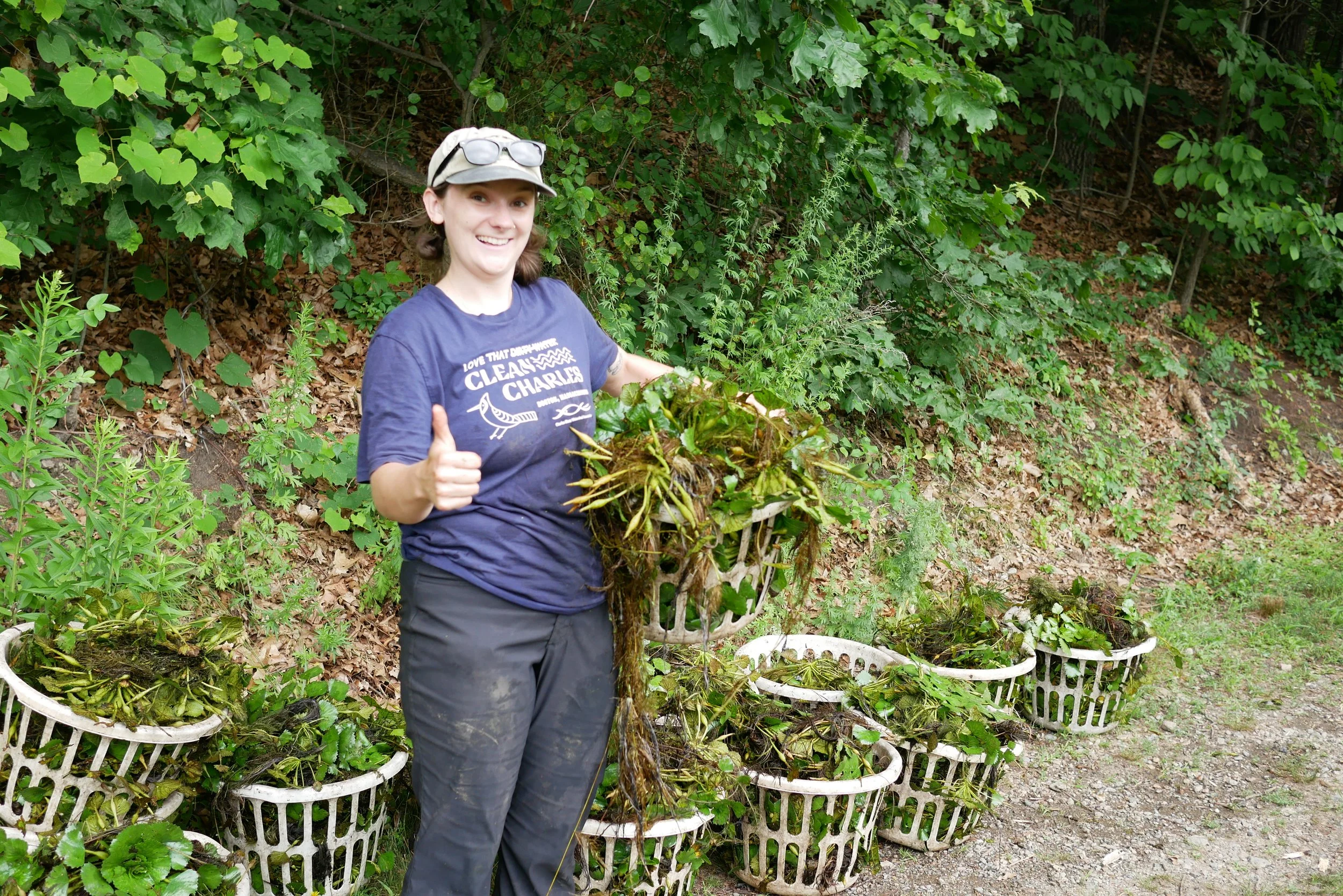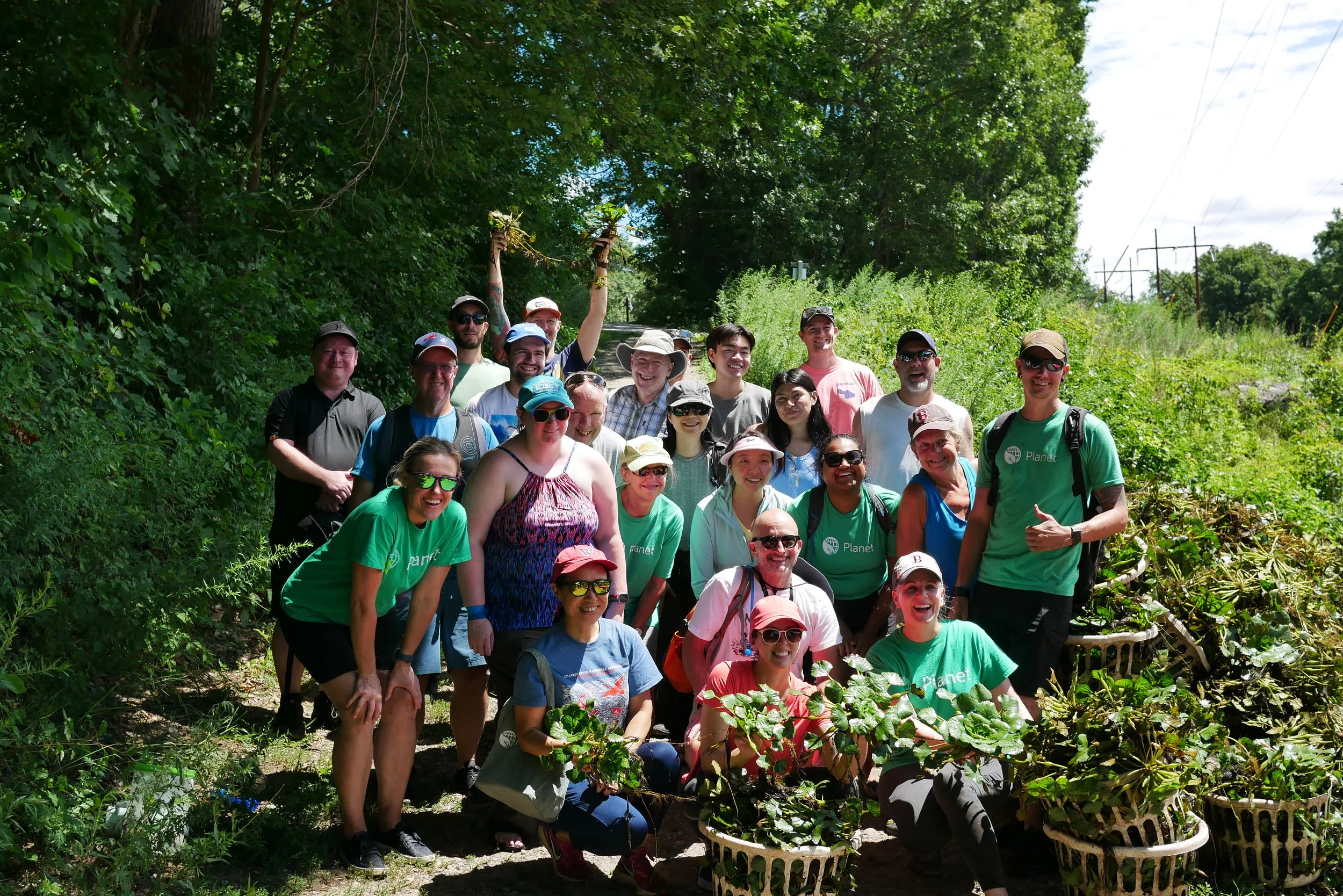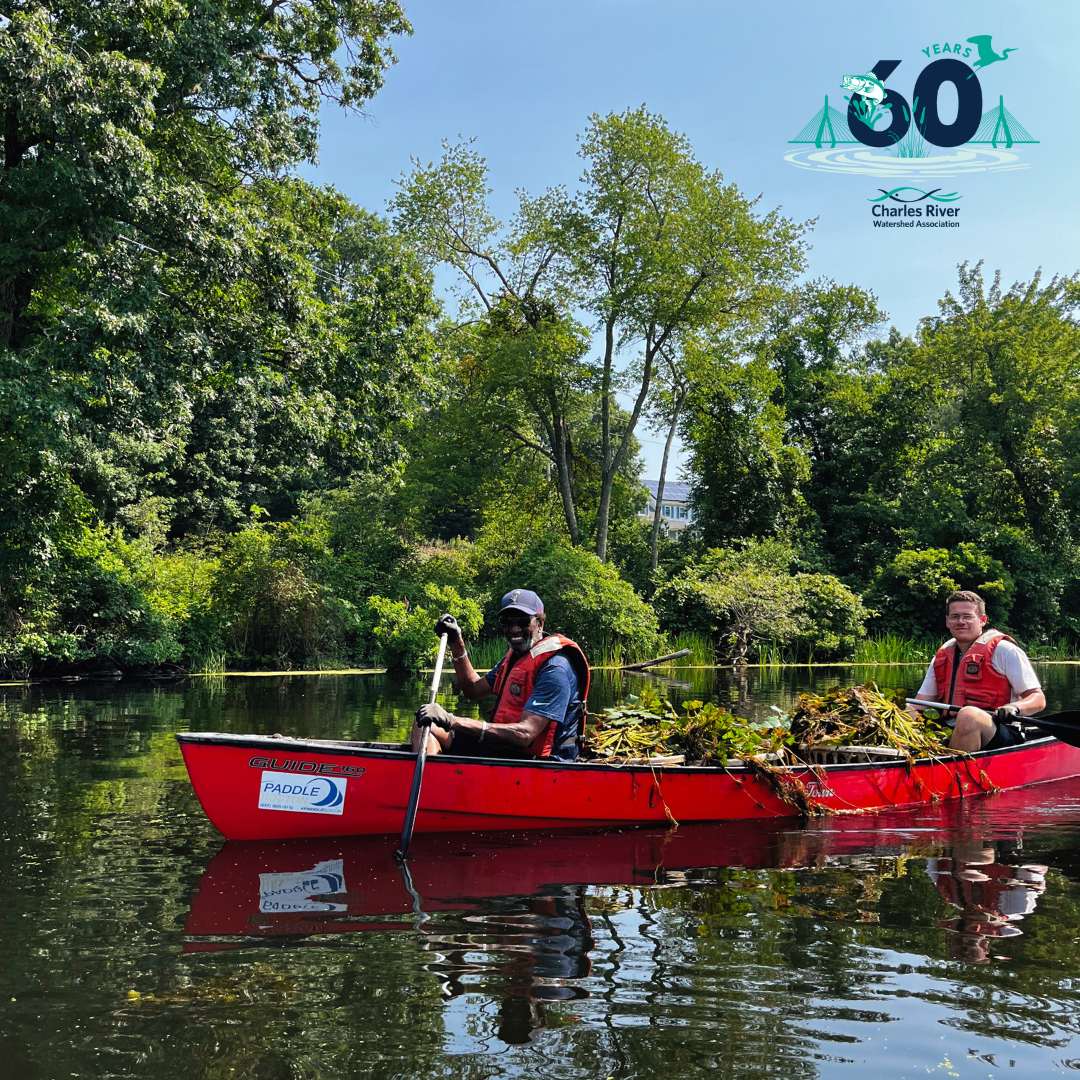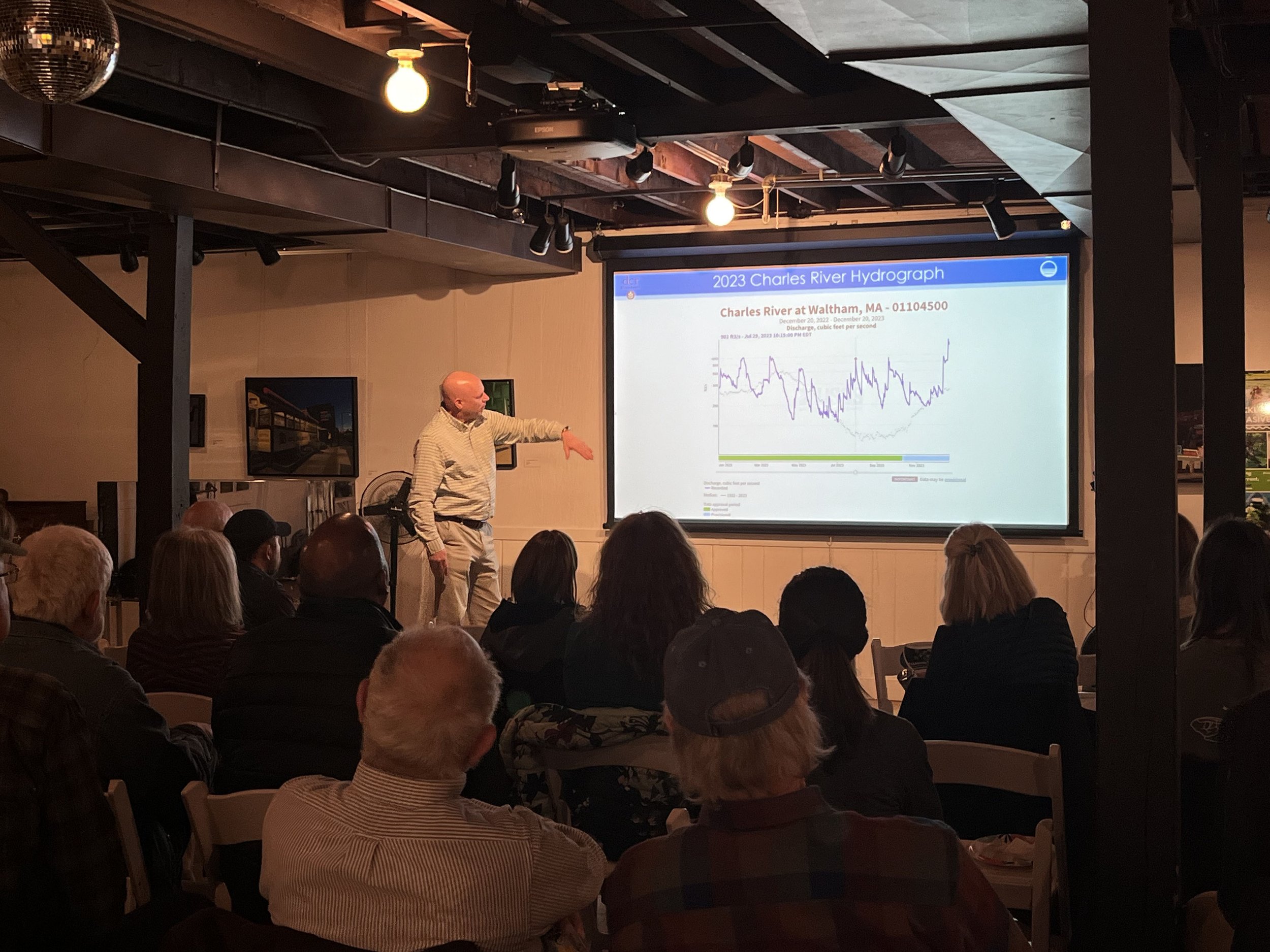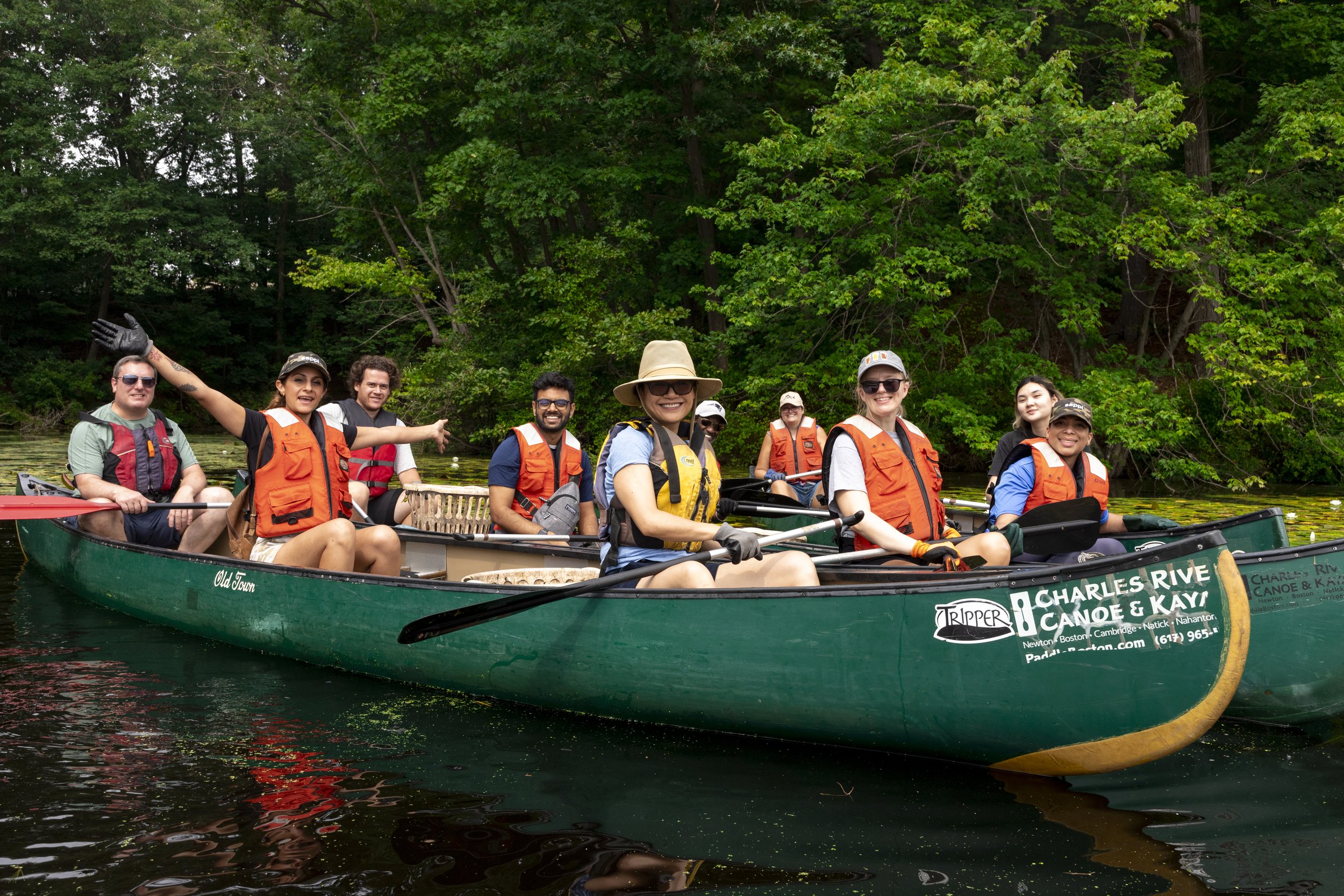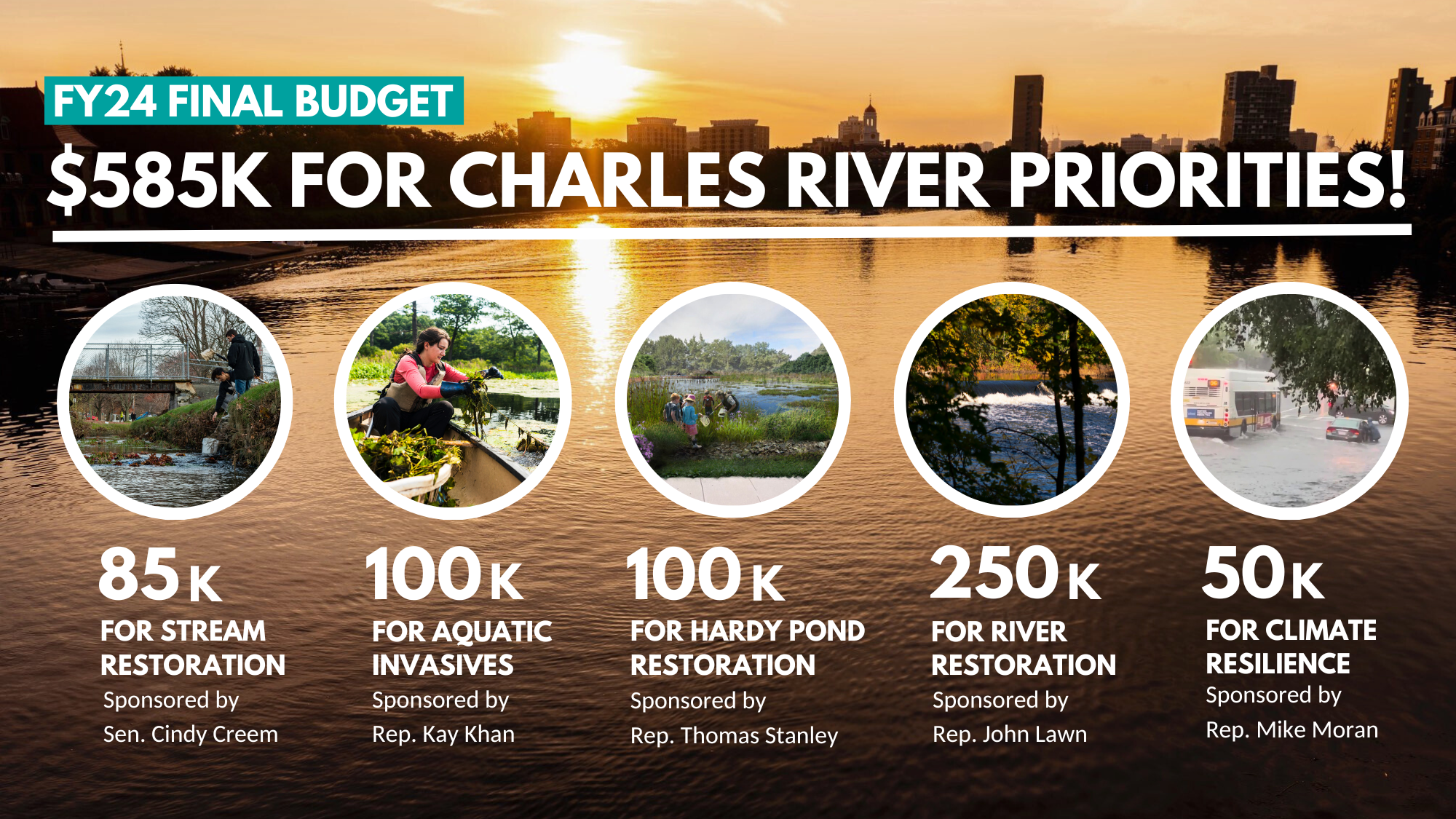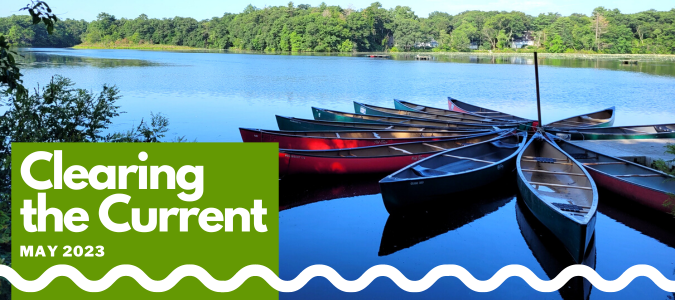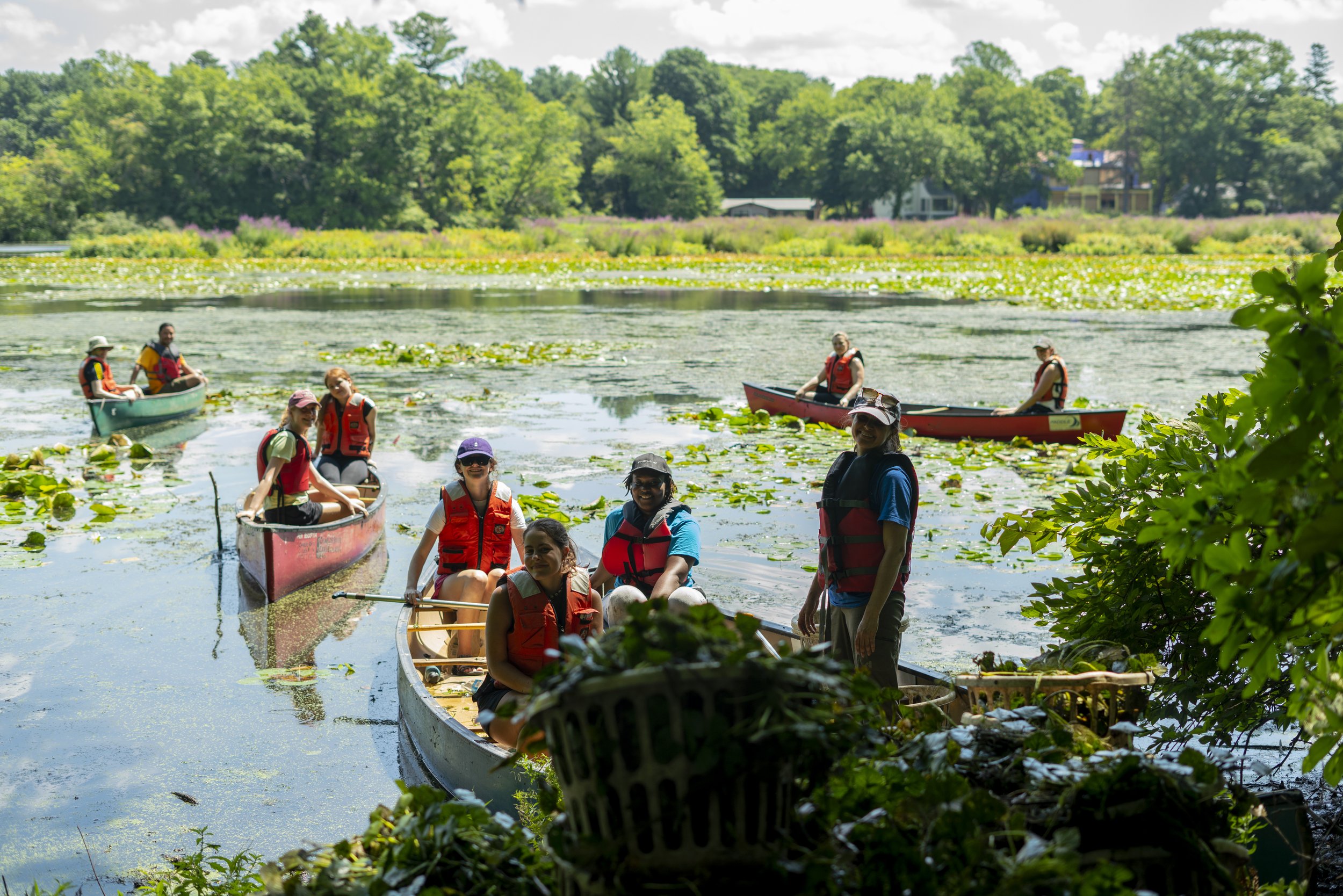
INVASIVE SPECIES
Tackling invasive species to restore the river ecosystem.
In our highly-urbanized watershed, invasive species have the perfect conditions to thrive.
Fast-growing, non-native terrestrial and aquatic plants that outcompete native species and quickly overtake the ecosystem, invasive species reduce biodiversity, degrade water quality, harm flood resilience, kill mature trees, and destroy wildlife habitat.
This is only getting worse with climate change–– increased precipitation and extreme heat mean more stormwater pollution, excess nutrients, and warmer water temperatures which cause rampant invasive species growth and native plant communities to suffer.
Invasive water chestnuts cover the surface of the Lakes District in Waltham and Newton in 2008.
We’re tackling invasive species:
With the help of hundreds of volunteers hand-pulling water chestnut and bittersweet in our invasive removal volunteer program, proactive management techniques with community partners, and efforts to curb stormwater pollution, we’re working together to restore a biodiverse, healthy river ecosystem.

INVASIVE WATER CHESTNUT REMOVAL PROGRAM
Water chestnut, or Trapa natans, is a fast-growing aquatic invasive plant species found in the Charles River. A rosette-shaped plant with triangular leaves that rapidly spreads on the surface of the river, water chestnut blocks out the light for all other life.
Since 2008, we have partnered with Paddle Boston and local community group Citizens Alliance for Noxious Weed Eradication (CANoE) to bring together thousands of volunteers, community members, and corporate groups to hand-pull invasive water chestnuts in the Lakes District, between Newton, Waltham, and Weston. To date, volunteers have removed over one hundred tons of water chestnuts from our river. Hand-pulling, in combination with mechanical harvesting by Department of Conservation and Recreation (DCR), has greatly reduced water chestnuts abundance.
However, the work is far from over to fully eradicate water chestnuts, and volunteers are always needed!
CLEARING THE CURRENT OF INVASIVE SPECIES
Several of the “sinister seven” aquatic invasive species–– Eurasian watermilfoil, variable watermilfoil, curly-leaf pondweed, fanwort, and spiny/brittle naiad–– cannot be removed by hand or mechanical pulling.
CRWA has partnered with the Department of Conservation and Recreation (DCR) to develop a five-year management plan to control the growth of submersed invasive aquatic plant species in the Charles River’s Lakes District, Weston, Waltham, Newton, and Lower Basin, Watertown, Newton, Cambridge, Boston. The plan entails applying safe, low-dose herbicides to the Lakes District and Lower Basin each summer to eliminate invasive species growth and restore native plant communities, habitat, and water quality to the Charles River ecosystem.
INVASIVE BITTERSWEET REMOVAL PROGRAM
Bittersweet, or Celastrus orbiculatus, is a fast-growing, deciduous, woody vine with round, glossy leaves and bright red berries in fall, that is quickly covering the forests and woodlands of our watershed. With the ability to grow up to sixty feet long, with a thickness as wide as six inches, its vines quickly cover, shade, and overtake the ecosystem–– eradicating all other life and even choking and killing mature trees when left unchecked.
Each year, we bring together hundreds of volunteers to pull invasive bittersweet to preserve vital mature trees, build biodiversity, and restore the river ecosystem. Trees are critical for water quality, as their roots trap stormwater runoff from nearby streets, naturally remove pollution from the runoff, and return clean water to the ground and nearby lakes and ponds.
At a time when we need biodiversity and trees the most, it is critical that we come together to clear out bittersweet vines and restore conserved land.
Volunteer Invasive Species Removals!
Join us for an unforgettable team-building activity out on the Charles River! Our work is only possible with the help of our dedicated volunteers. Join us!
BITTERSWEET REMOVALS May-June, August-September
WATER CHESTNUT REMOVALS June-July
NEXT YEARS DATES AVAILABLE SPRING 2025
Recent News.
